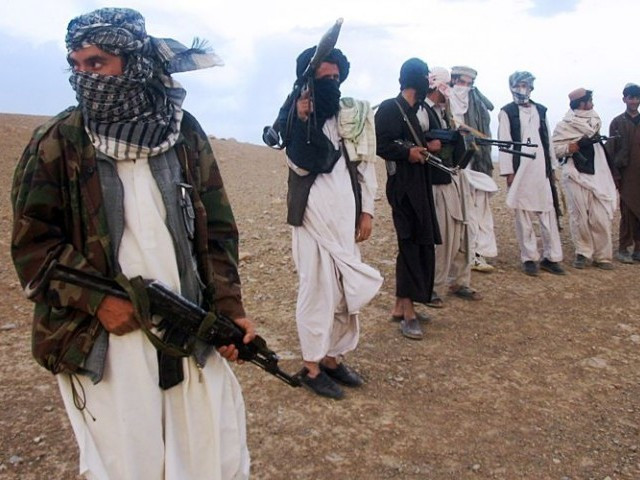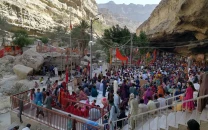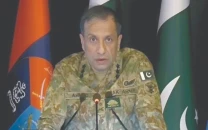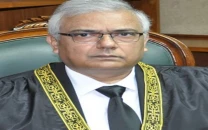Peace in Afghanistan: Non-official dialogue hails quadrilateral process
Warns that mutual misperceptions can disrupt the process and bilateral relations

A file photo of the Afghan Taliban. PHOTO: AFP
Members of a non-official Afghan and Pakistani dialogue have welcomed the quadrilateral process that has decided to set date for talks between the Afghan government and the Taliban.
They hoped that the process continued with added transparency and in line with globally accepted fundamental values; that the Taliban would attend the session as interlocutors and that women’s perspective would be taken into consideration in the forthcoming Quadrilateral discussions.
The members noted that the mutual misperceptions could disrupt the quadrilateral dialogue and bilateral relations and thus needed urgent attentions from those at helm of Pakistan and Afghanistan.
The said these potentially disruptive factors mainly include Afghan perception of Pakistan support to Afghan Taliban.
“Conversely, Pakistan’s perception of Afghanistan’s lack of action against elements involved in subversive activities in Pakistan, interplay of ideology and money in sponsoring terrorism, the evolution of radical organisations in the region, possible escalation of violence, the anticipated spring offensive, the politicisation of the refugees issue and sensationalised reporting,” said a statement at the conclusion of the two-day dialogue..
The dialogue was a fifth major round in the series of meetings between civil society and regional security experts of both countries as part of ‘Beyond Boundaries’, a major Afghanistan-Pakistan track 1.5 and II initiative launched by an Islamabad based Centre of Research and Security Studies (CRSS).
Initiated in partnership with its Afghan counterpart organisation, Duran Research and Analysis (DRA) and sub-national partner – the Foundation for Integrated Development Action (FIDA) – it was an effort to improve relations between Afghanistan and Pakistan, soothe bitter context, tackle trust deficit which can somehow de-escalate the heightened tensions and improve mutual perceptions.
The working group members unanimously endorsed taking indiscriminate action on both sides against unconstitutional non-state actors. They emphasised the need to promote cultural ties by building on existing historical linkages, organising seminars, cultural and literary events, concerts, exchange of visits of writers, students, opinion makers, developing films and documentaries.
They also called for expanding the scope of these activities beyond Islamabad and Kabul, with the broader aim of creating a conducive ambiance for people to people relationship and strengthening impulses for peace, stability and cooperation.
Given significance of the free media, and with the aim of orienting bilateral relations in a positive direction, the delegates emphasised that institutions and think tanks jointly conceive media projects and organise exchange of journalists while underscoring the need to set up a Joint Pakistan-Afghan Civil Society Working Group for long term cooperation.
Underscoring the need for both countries to review their educational curricula in order to promote tolerance, peace and civic education, the ‘Beyond Boundaries’ delegates believed that the educational collaboration between both countries was crucially important.
They urged their respective governments to develop a comprehensive and transparent programme for scholarly exchange between two countries. These may include scholarships up to PhD level, visiting scholar programmes and alumni networking on both sides, through engagement of credible and reputable educational institutions.
Published in The Express Tribune, February 10th, 2016.



















COMMENTS
Comments are moderated and generally will be posted if they are on-topic and not abusive.
For more information, please see our Comments FAQ